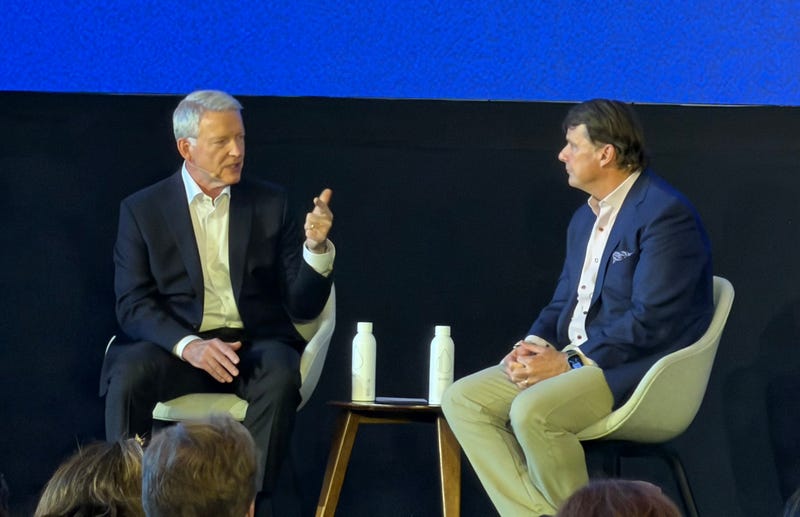
DETROIT (WWJ)--The message from America’s business leaders–the lack of skilled talent puts the U.S. at risk of falling behind other nations in the global economic competition.
Ford invited CEOs from several major companies to a special event called “Ford Pro Accelerate: The Essential Economy” at Michigan Central Station. It’s an event, the company says that underscores a growing productivity divide between the U.S. and its global competition.
“We have to put some points on the board here,” said Ford CEO Jim Farley. “We have to come up with some programs, and if Ford has to take the lead or other companies have to take the lead, we have to sacrifice our short-term profitability to put more people in the workforce.”
Ford announced a five million dollar plan to improve workforce training for more than 100 thousand students. The money will be used for a variety of projects, from K-12 education to programs that train auto technicians.
Farley says the shortage of workers with needed skills is holding back the entire economy.
“I mean we're talking millions and millions of jobs that are unfilled that are a hundred thousand dollars plus jobs, but they require training,” he said. “You can't work on a diesel F-150 if you haven't been trained for five years at a minimum, five years. So the demand is there.”
This goes hand in hand, Farley says, with the growth of software and artificial intelligence.
“Who's going to build all these data centers? We keep talking about our data centers. We have huge construction companies here today. They will tell you this is a big issue for them.”
More than 300 businesses were represented at the meeting, where attendees heard from dozens of top executives.
“I would put this in the category of critically important right now,” said Jamie Dimon, chairman and CEO of JPMorganChase. “America has one of the best and most prosperous economies the world has ever seen. But we’ve gotten bogged down by crippling bureaucracy that slows down growth, job creation, and innovation. Too often, it can take longer to get permits than to build something. We can grow our economy for the benefit of all Americans, and I believe meetings like this will help us do that.”
Dimon spoke by video, but many other top execs were on hand personally.
“More than a million skilled trade jobs are going unfilled today – a number that’s only projected to rise,” said Linda Hubbard, President and CEO, Carhartt, Inc. “Skilled trade jobs are too often overlooked as pathways to meaningful careers, yet these workers are the backbone of our
economy. Elevating and investing in this workforce is critical to our physical infrastructure, industrial production and community development—everything that supports our society and helps it advance.”
The need for partnerships between government and industry was a subject that was addressed again and again. Farley said the conversations on the local level tend to be the most important, but it’s also important to keep the lines of communication open with the Trump Administration.
Farley raised some concerns about the costs of tariffs, but also said carmakers were being helped by changes in regulations. He said there is a lot of common ground.
“I think the president is very committed to companies like Ford that make almost all of its products in the US, but we're now just accentuating the demand problem, is what I see so far. We're going to need more technicians. If Ford brand is more successful in the US, our dealers are most successful. We have to repair more vehicles. We'll build more plants, but who's going to build them?”
